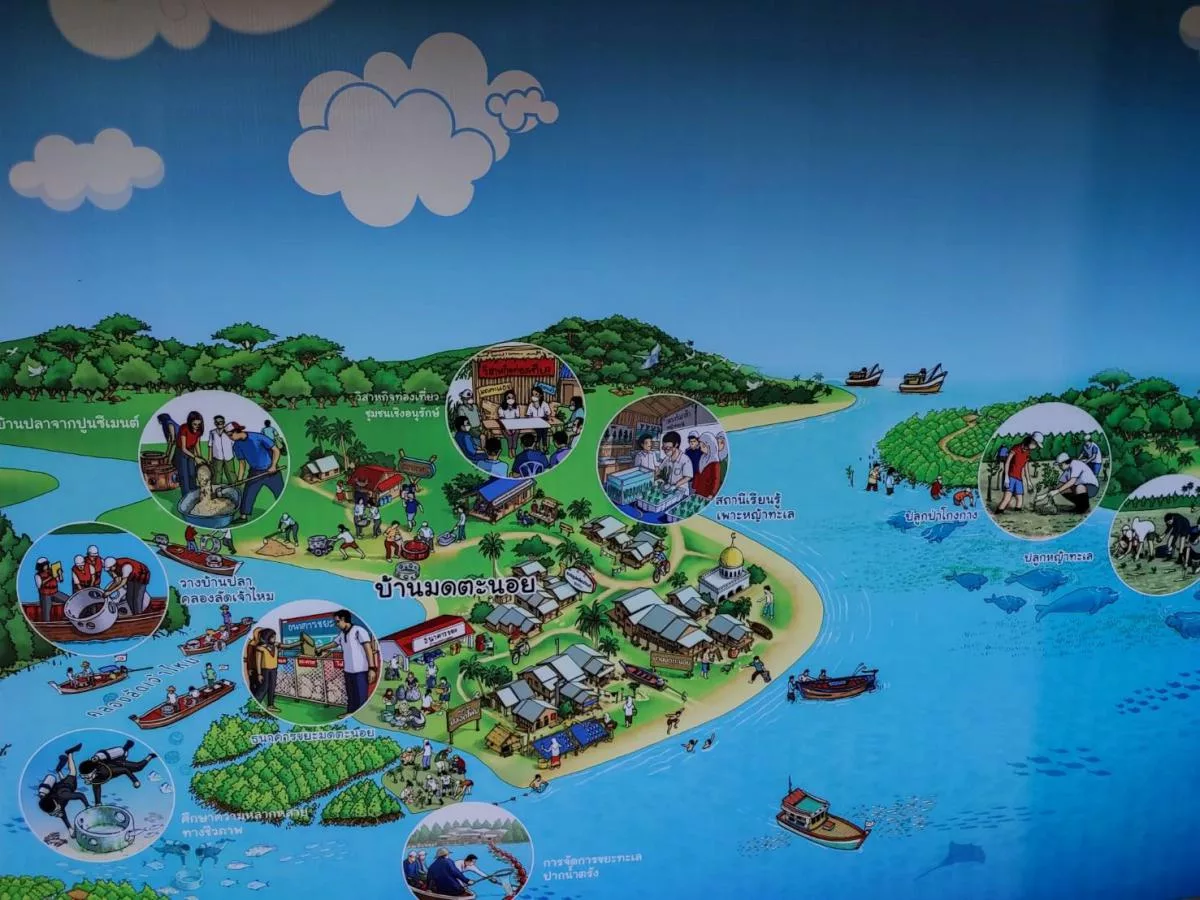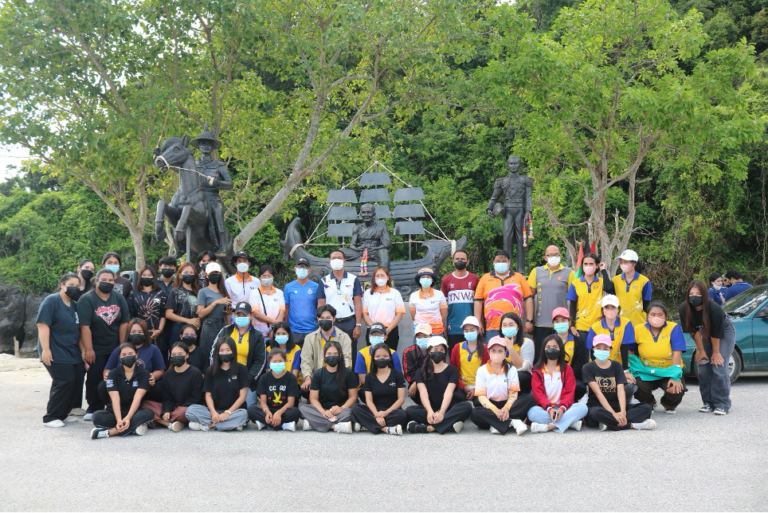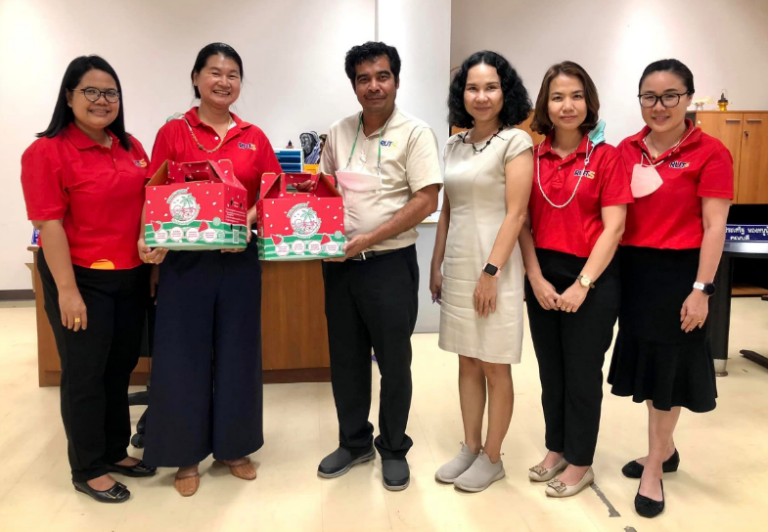Reporters : Asst. Prof. Porntep Wirachwong, Dr. Chanyut Sudtongkong, Miss. Hathaitip Tongdoung
Indicator : 14.3.3
Date : November 22, 2022
Related SDGs:
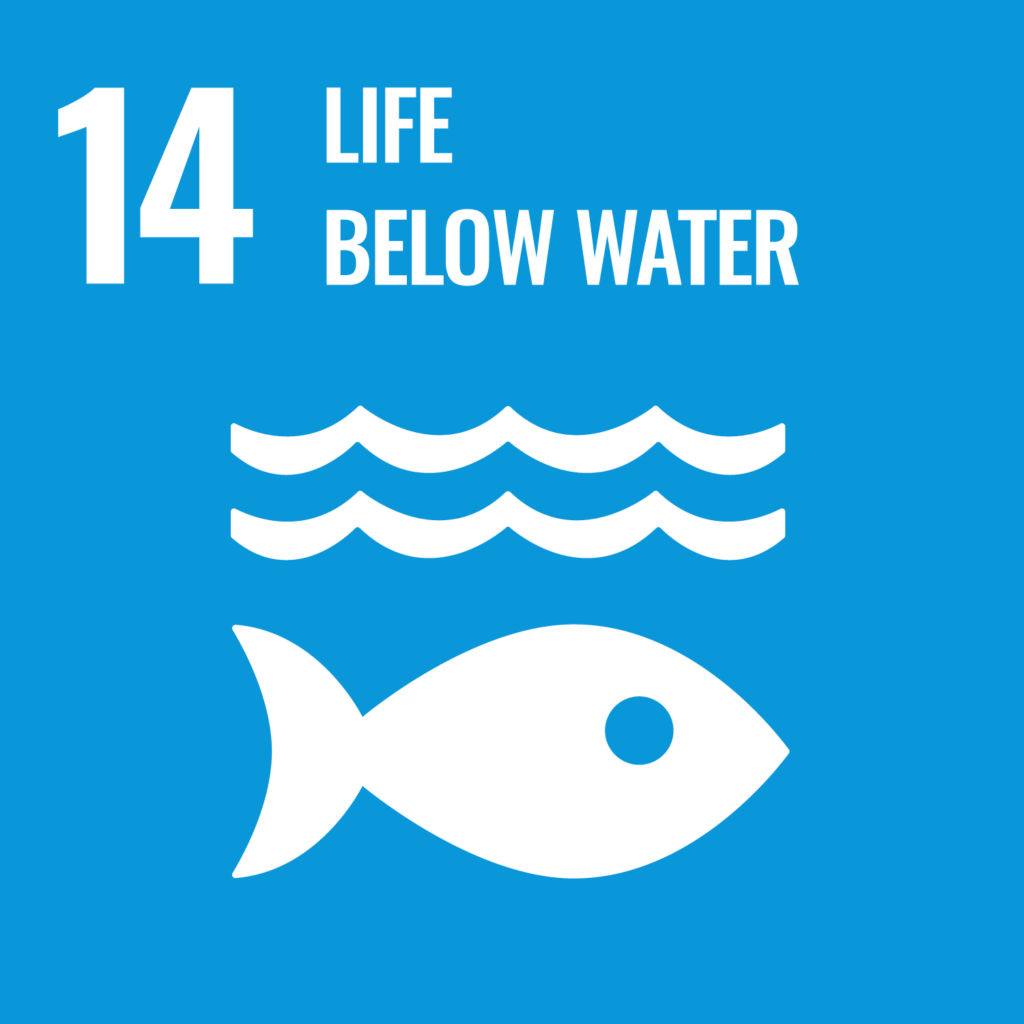
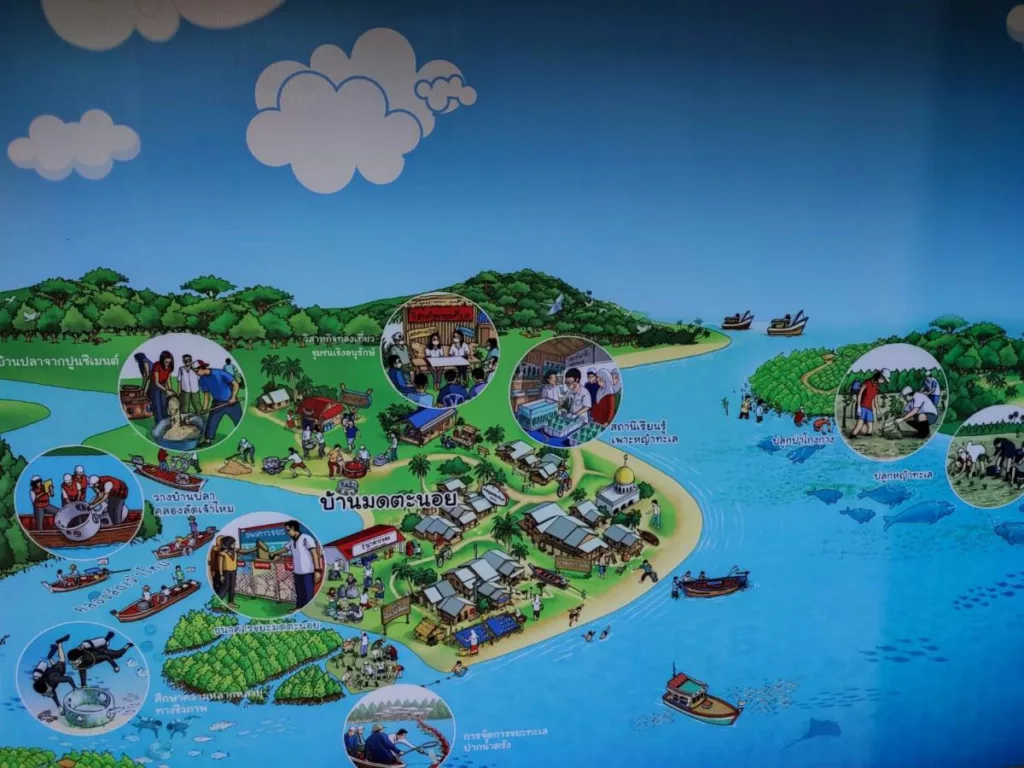
Trang Province, Thailand, is home to the largest area of seagrass beds in the country, with approximately 6,720 hectares. These seagrass beds provide critical habitat for dugongs (Dugong dugon), which are listed as vulnerable on the IUCN Red List of Threatened Species. Dugongs are marine mammals that rely on seagrass for food and shelter. They play an important role in the marine ecosystem by grazing on seagrass, which helps to keep the seagrass beds healthy and productive. Seagrass beds also provide habitat for a variety of other marine life, including fish, invertebrates, and sea turtles.
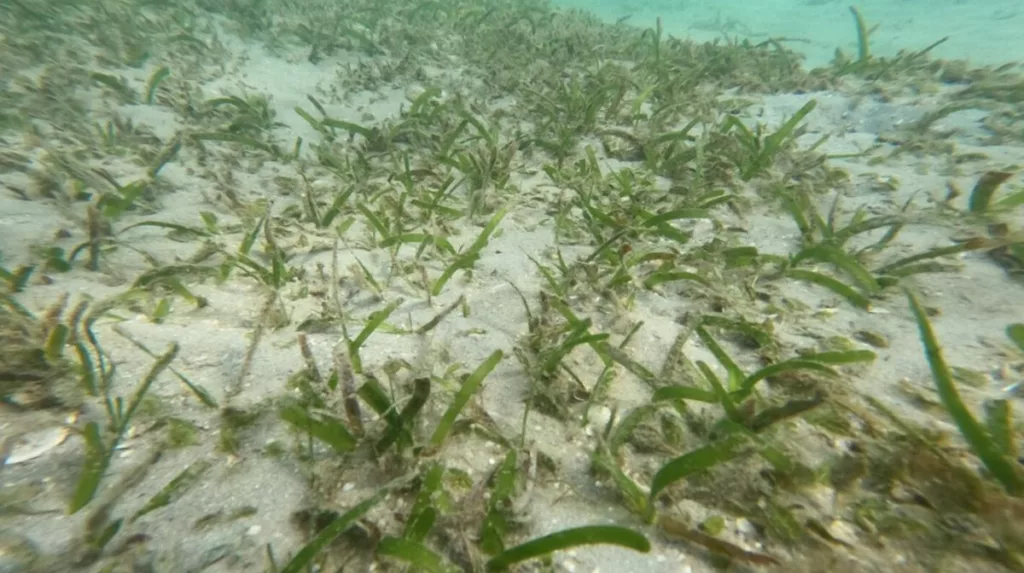
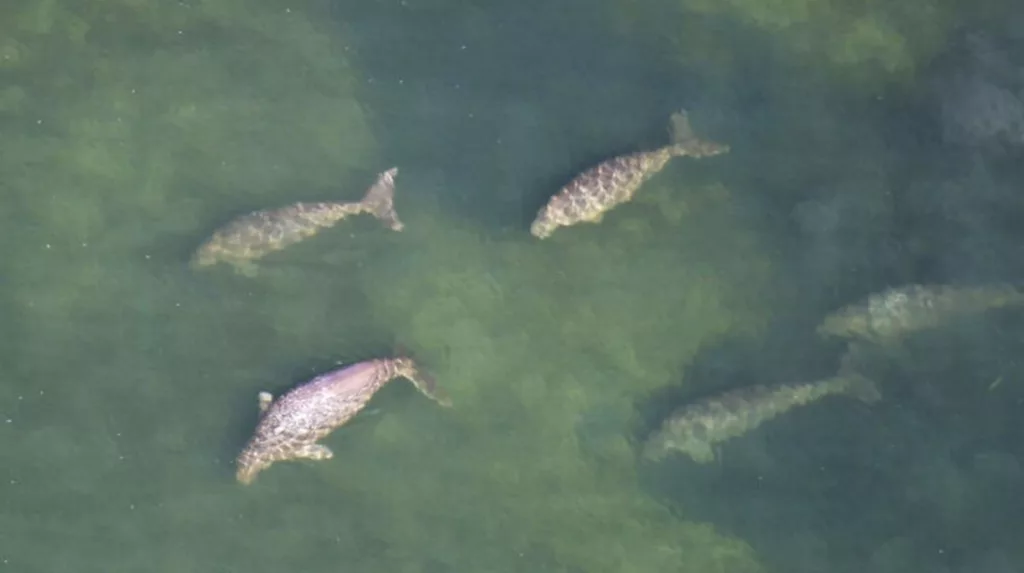
In recent years, there have been concerns about the decline of seagrass beds in Trang Province due to a number of factors, including pollution, sediment and anthropic activities. The protection of seagrass beds in Trang Province is essential for the long-term survival of the dugong and other marine life.
Rajamangala University of Technology Srivijaya (RUTS) is playing a critical role in maintaining the complex and existing coastal ecosystems of Thailand. Assistant Professor Porntep Wirachwong, leader of Marine Science and Environment program (RUTS), and his colleagues organized the project “Seagrass Restoration Learning Center (SRLC)”, at Mod Tanoi Village, Trang province in collaboration with the local community.
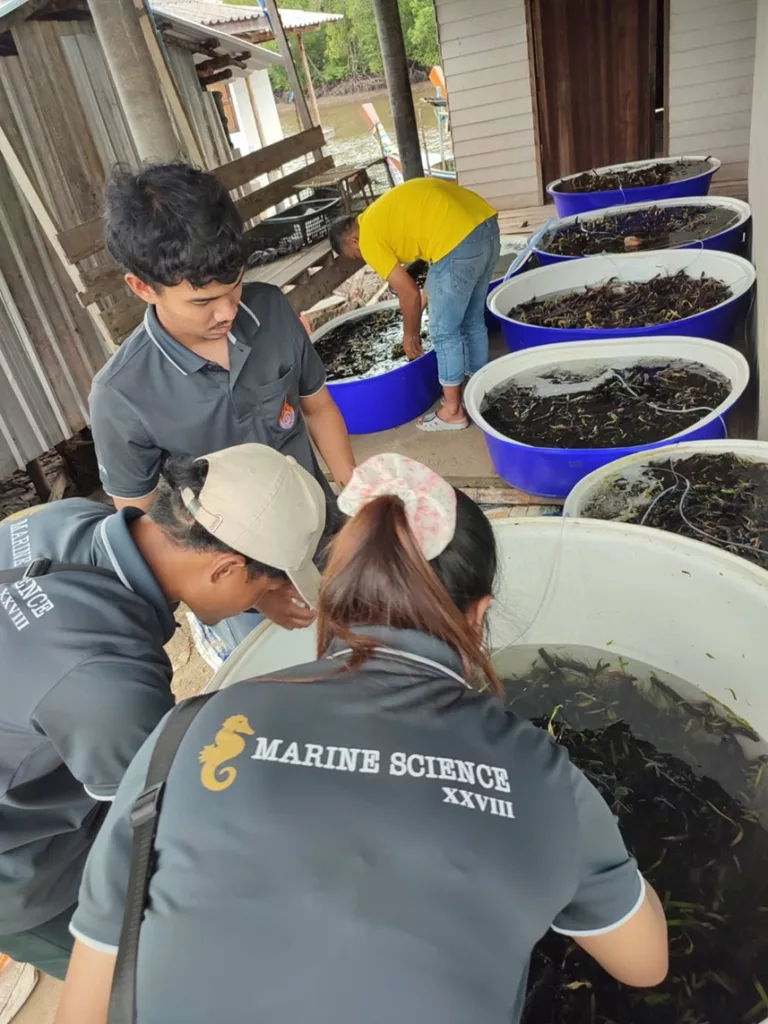
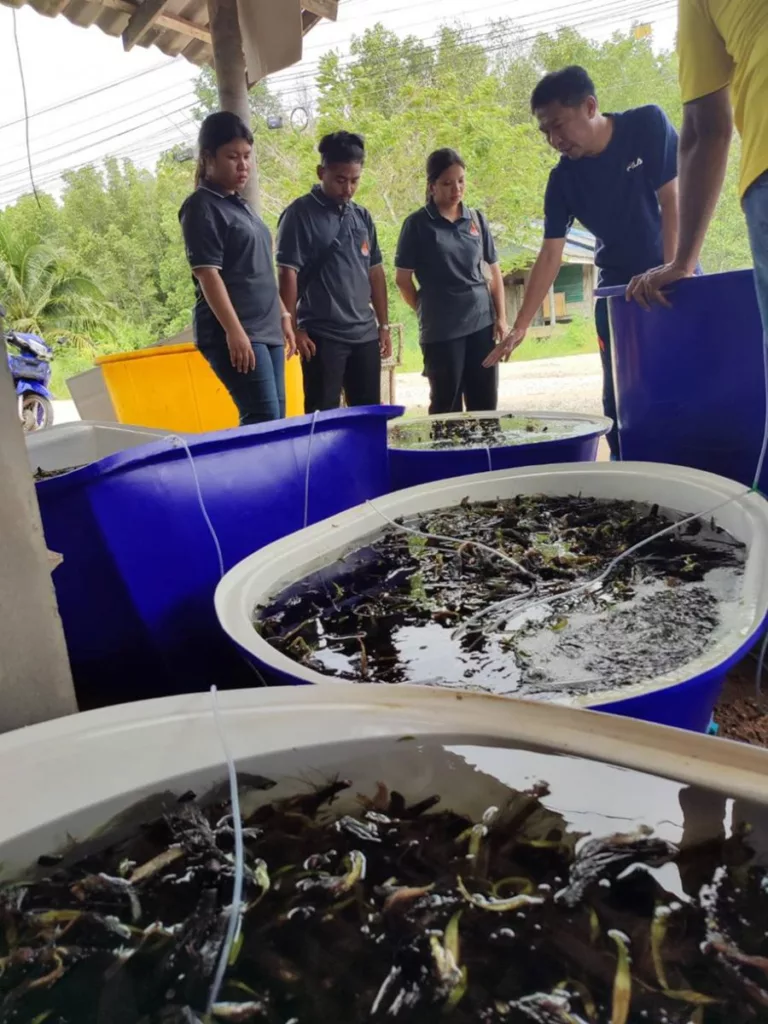
The primary objective of the center was to develop and refine seagrass restoration techniques to maximize the survivorship of transplanted seagrasses. The center provides education and training on seagrass restoration techniques to a variety of stakeholders, including students, scientists, and coastal communities. This training can help to build capacity and knowledge in the field of seagrass restoration, which is essential for developing and implementing effective seagrass restoration programs.
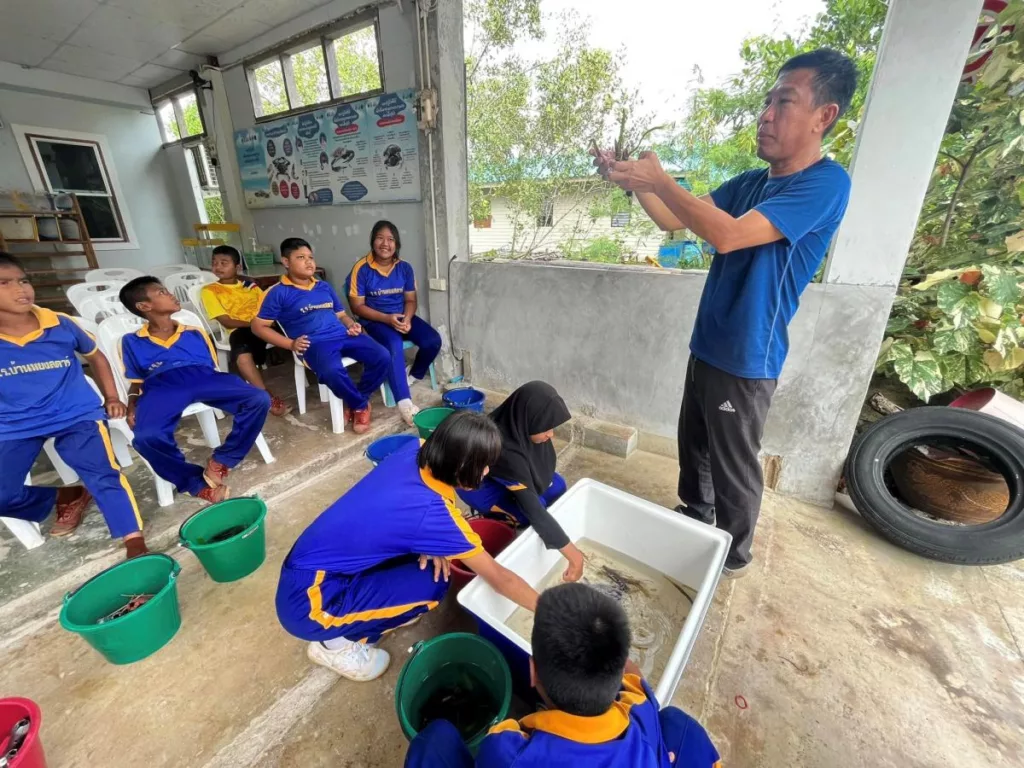
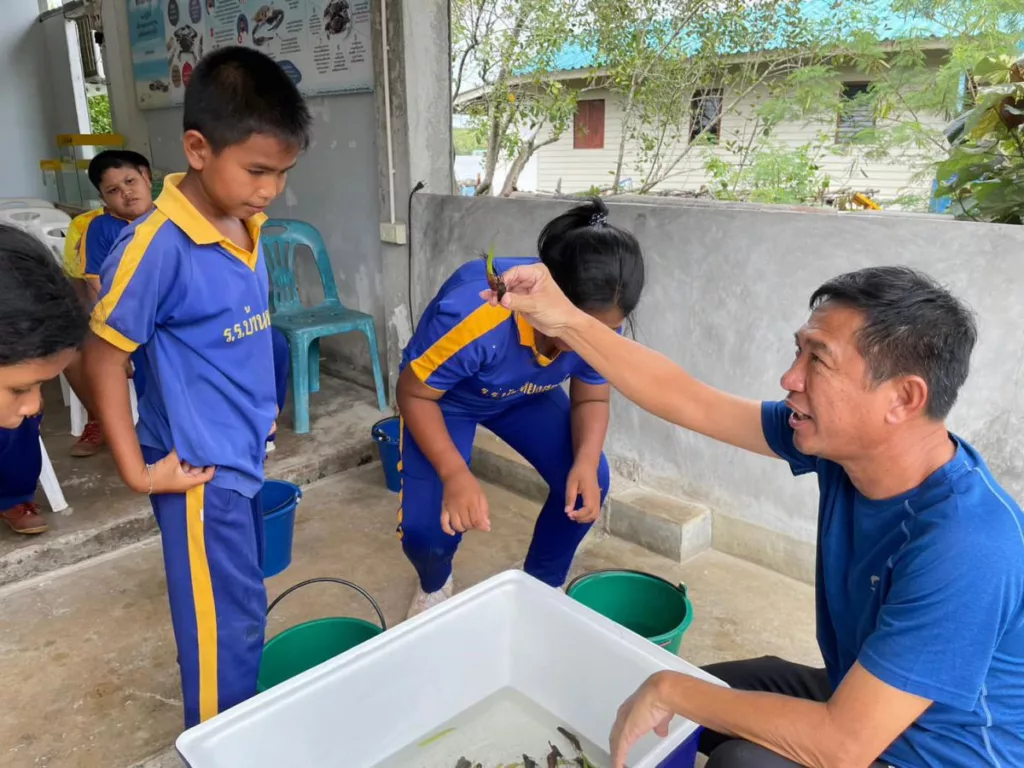
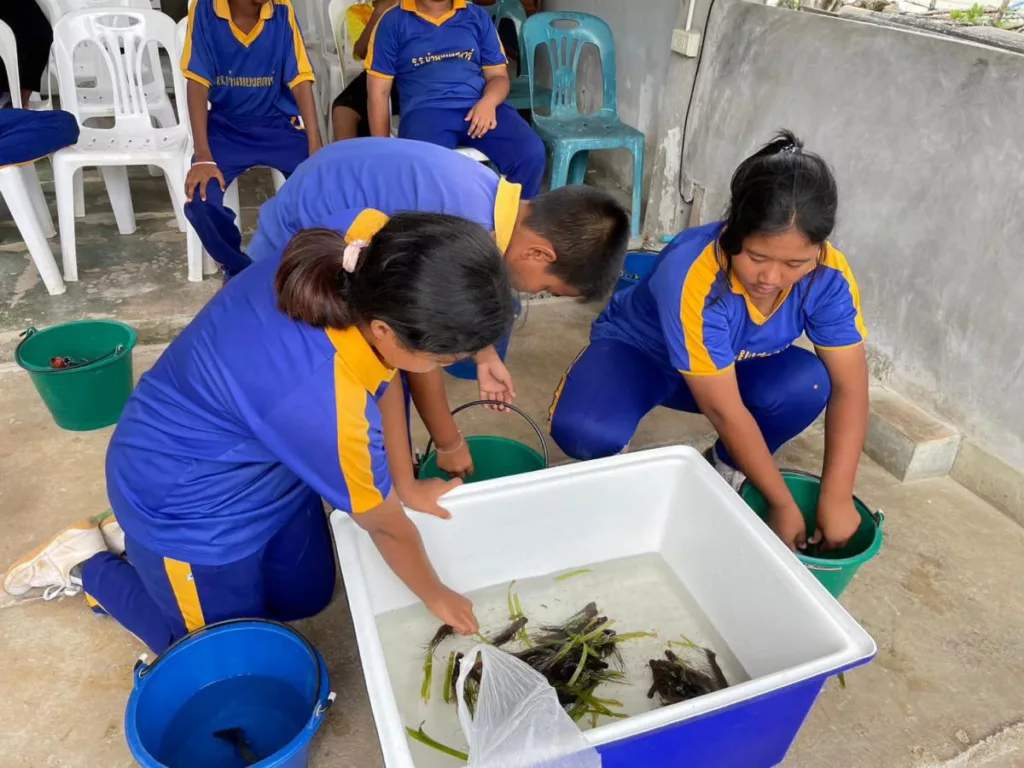
In addition, the learning center’s support of seagrass planting is a valuable contribution to marine conservation. By providing seedlings and guidance, the center is helping to ensure that seagrass beds are restored and protected for future generations.

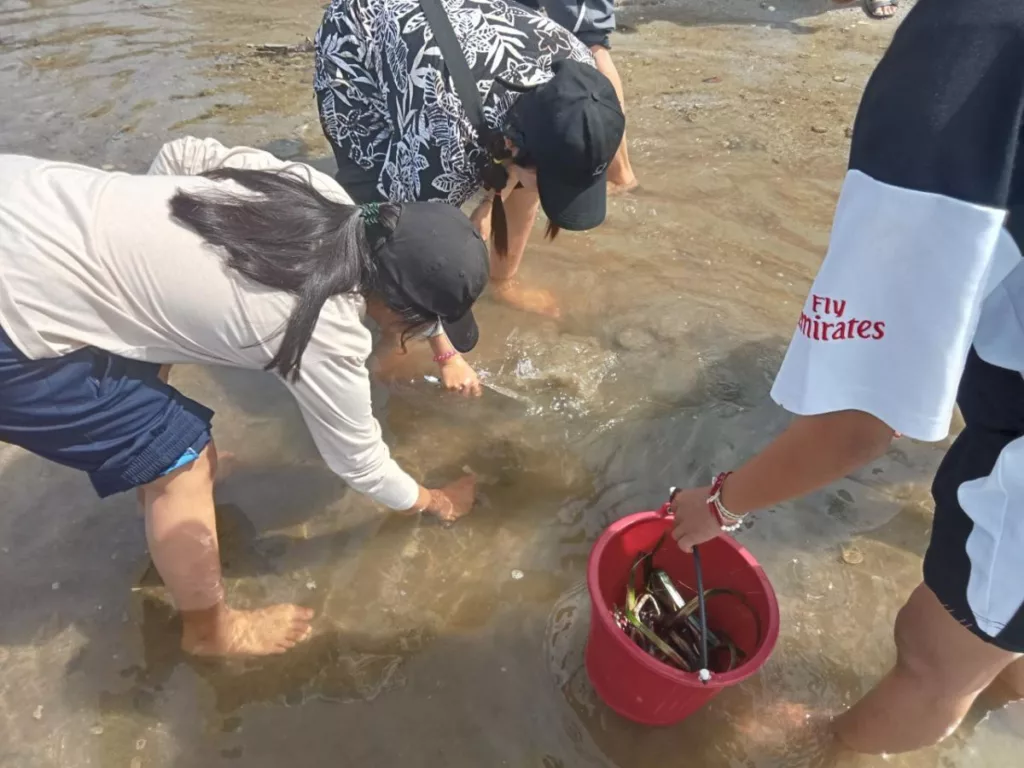


Related Links:
https://www.facebook.com/photo/?fbid=3358328201047634&set=pcb.3358328737714247
https://www.facebook.com/100004257520467/videos/296173056263824/
https://www.facebook.com/photo/?fbid=2650932545058637&set=pcb.2650935558391669

